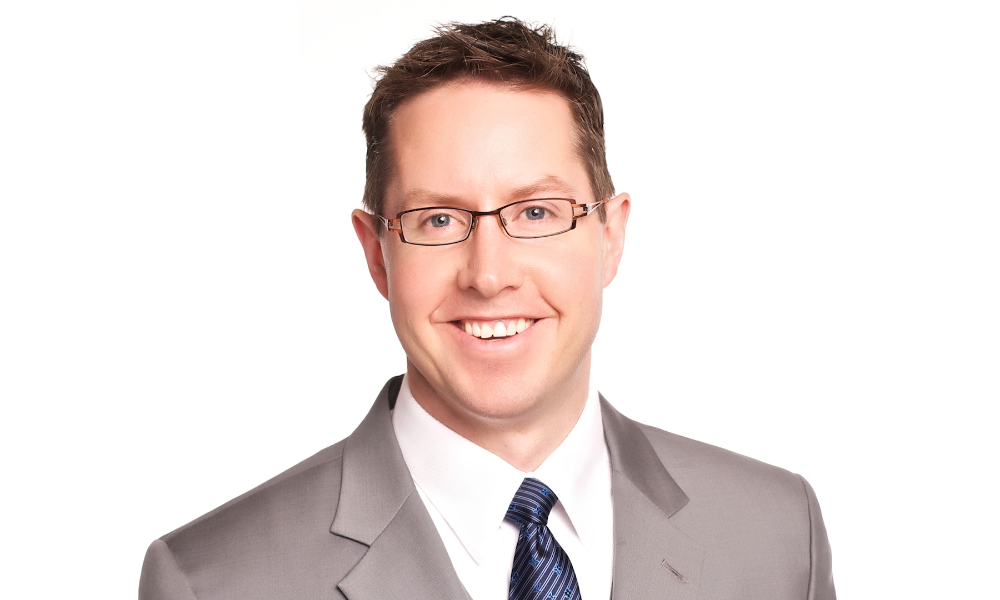
He's the only in-house lawyer involved in the construction of the world's largest ethylene cracker

Canadian Lawyer spoke with Lorne O’Reilly, Lead Counsel with Dow Canada and a Canadian Lawyer Editorial Board member who will help select the winners for the Top 25 Most Influential Lawyers of 2023 list. Nominations are now open.
When you think of Dow Chemical, you think big, which makes it somewhat surprising that Lorne O’Reilly is the only lawyer in Dow Chemical Canada’s legal department. But he relishes the opportunities his job presents.
“Being the only counsel for Dow in Canada allows me multiple perspectives, ranging from regulatory dealing with Canada and Alberta, the environment, fisheries, and daily operations involving things like contracts and human resources,” O’Reilly said. “Dow also has excellent legal departments around the world, and if something unique arises, I have access to internal counsel in the US and elsewhere.”
O’Reilly has been with Dow for eight years. He’s been very busy throughout.
“Contrary to what a lot of people believe or believed in the past, going in-house involves long days and is definitely not a lifestyle choice,” he said. “The great thing is everybody understands the demands on me and manages their expectations accordingly. We triage as best we can so that we can at least give people a heads-up when necessary.”
Among the interesting matters in which O’Reilly has been involved is the litigation leading up to the Supreme Court of Canada’s 2022 decision in Nova Chemicals Corp. v. Dow Chemical Co., which set out the principles governing recovery under the accounting of profits remedy in patent cases, and affirmed the largest reported Canadian patent infringement award ever by ordering Nova to pay Dow some $645 million for infringement of the company’s patent on novel polyethylene blends.
“Smart & Biggar did an amazing job on that file,” said O’Reilly, who also works regularly with Bennett Jones LLP; Blake, Cassels & Graydon LLP; Burnet, Duckworth & Palmer LLP; and Dentons Canada LLP, among others.
O’Reilly may soon be facing his biggest challenge yet.
With Dow needing increased capacity every six to eight years, the company has decided to build the world’s largest ethylene cracker (a facility that performs the first step in transforming ethane, a component of natural gas, into plastics) and first net-zero carbon emissions ethylene and derivatives complex at its Fort Saskatchewan site just outside of Edmonton. The organic, brownfield investment would more than triple the site’s ethylene and polyethylene capacity while retrofitting the site to net-zero scope 1 and 2 carbon dioxide emissions.
“Dow hasn’t disclosed its final investment decision as yet, but the numbers that have been thrown around are close to $10 billion until the project’s completion in 2030,” O’Reilly said.
As part of the pre-construction preparation, O’Reilly is negotiating 28 collective agreements, dealing with at least 6,000 contractors expected on site, and working with the third parties running the air supply and industrial gas facility, the carbon sequestration facility, and the co-generation facility.
“All this involves site services, leases, operating agreements, and the entire spectrum of services involved in the construction of a project this big,” O’Reilly said.
Fortunately, he’s not starting from scratch.
“We’ve been preparing for a couple of years, so we have amazing purchasing department resources as well as Canadian templates for many documents, including invitations to bid,” O’Reilly said.
Fortunately, because the project is on an existing site with the goal of reducing emissions, consideration of the environmental aspects and Indigenous rights has not been daunting.
“Which is not to say that we haven’t been engaging and will continue to interact with local First Nations and Métis groups,” O’Reilly said.
As he sees it, the project’s biggest challenge is the labour market.
“We need to make sure we have the resources to support the scale of the project, so there’s a lot of work to be done with the trades.”
Communicating with government to engage their continuing support is also a challenge, as is Alberta’s relatively new prompt payment legislation.
“We want to make sure we can fit everything within the statutory timelines,” O’Reilly said.
As if he hasn’t been busy enough, O’Reilly is also on the global board of the Association of Corporate Counsel, an organization with which he’s worked for 12 years, establishing the Alberta chapter in 2014.
From that perspective, O’Reilly is well-placed to observe the challenges facing in- counsel generally.
“They include figuring out how equity and diversity initiatives can play a role in the legal department and the organization as a whole, how legal spend can generate the best value, and how to ensure the business side sees the value of the legal department.”
Keeping up with technology, issues relating to information management and privacy, and how to deal with the growth of flexible work arrangements are also at the forefront.
“When it comes right down to it, no area’s gone untouched in the last eight to 12 years,” O’Reilly said.
Finally, O’Reilly sees tremendous value in his role as a judge in the Top 25 Most Influential Lawyers list.
“There are star performers and great ideas,” he said. “If I weren’t participating, I’d be limited to reading about them or looking them up on LinkedIn, but this way, I get insight into each of the nominees and their innovative concepts, as well as getting to know people who are incredible advocates for their clients.”